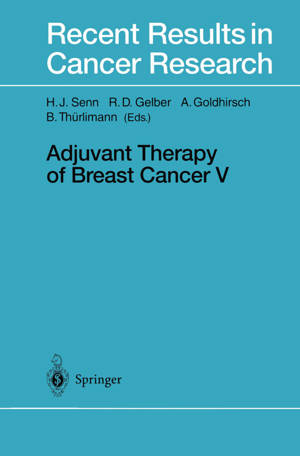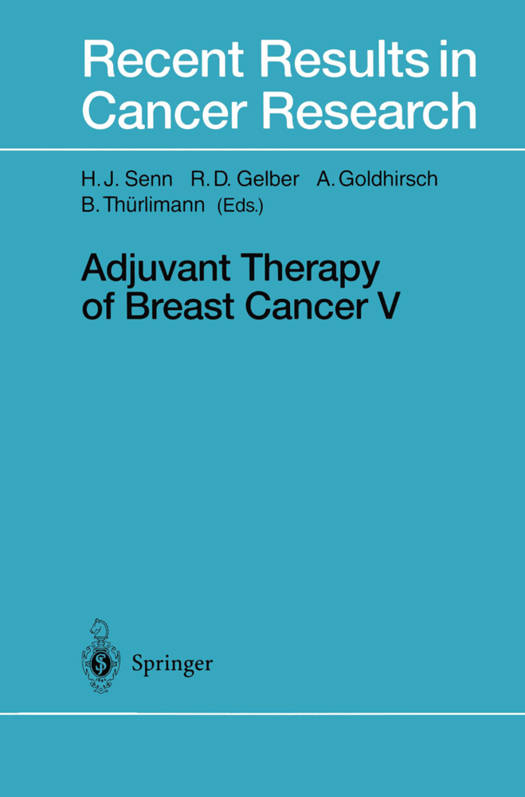
Je cadeautjes zeker op tijd in huis hebben voor de feestdagen? Kom langs in onze winkels en vind het perfecte geschenk!
- Afhalen na 1 uur in een winkel met voorraad
- Gratis thuislevering in België vanaf € 30
- Ruim aanbod met 7 miljoen producten
Je cadeautjes zeker op tijd in huis hebben voor de feestdagen? Kom langs in onze winkels en vind het perfecte geschenk!
- Afhalen na 1 uur in een winkel met voorraad
- Gratis thuislevering in België vanaf € 30
- Ruim aanbod met 7 miljoen producten
Zoeken
Adjuvant Therapy of Breast Cancer V
€ 168,45
+ 336 punten
Omschrijving
We often hear physicians, health care professionals, poli- ticians, and patient advocates that "nothing has happened in the treatment of breast cancer," since patients with breast cancer, the most frequent neoplastic condition in women in industrialized countries, are continuing to suffer relapse and succumb to this dreadful disease! This negativistic attitude does not seem to be justified, but, why is the transmission of clinical trial results into general practice, and with it progress, such a slow process? After many decades of frustrating stagnation of long-term survival expectations, in all stages of early, oper/lble breast cancer treated only by surgery and locoregional radio- therapy, adjuvant systemic therapy (chemo- as well as endocrine treatments) clearly showed to significantly benefit in terms of disease-free and overall survival. This evolution has been extensively expounded on by the Worldwide Oxford Overview and the Expert Consensus Panel at the fourth International Conference 'on Adjuvant Therapy of Primary Breast Cancer in St. Gallen (Early Breast Cancer Trialists' Collaborative Group 1992; Glick et al. 1992). What has happened since then? During the past 3-5 years, several new concepts and treatment strategies have emerged and have been studied in various major breast cancer groups and treatment centers worldwide. Some of these can already be considered to assist in the primary treatment of operable breast cancer today, while others are . still undergoing clini, cal trials for better definition of their practical usefulness.
Specificaties
Betrokkenen
- Uitgeverij:
Inhoud
- Aantal bladzijden:
- 342
- Taal:
- Engels
- Reeks:
- Reeksnummer:
- nr. 140
Eigenschappen
- Productcode (EAN):
- 9783642792809
- Verschijningsdatum:
- 25/12/2011
- Uitvoering:
- Paperback
- Formaat:
- Trade paperback (VS)
- Afmetingen:
- 156 mm x 234 mm
- Gewicht:
- 503 g

Alleen bij Standaard Boekhandel
+ 336 punten op je klantenkaart van Standaard Boekhandel
Beoordelingen
We publiceren alleen reviews die voldoen aan de voorwaarden voor reviews. Bekijk onze voorwaarden voor reviews.








